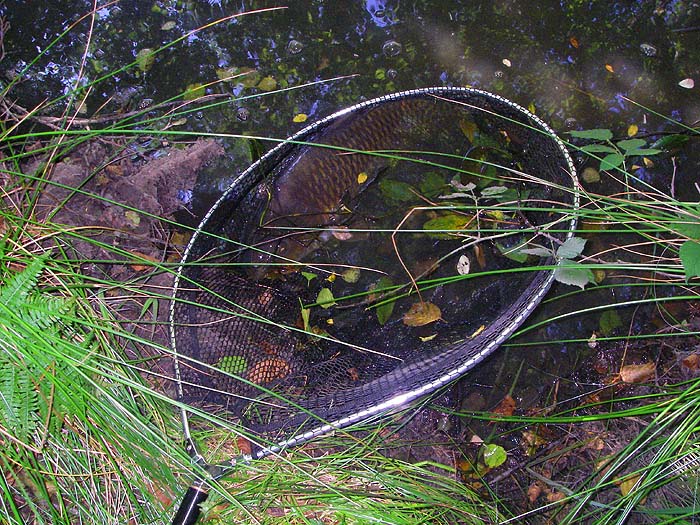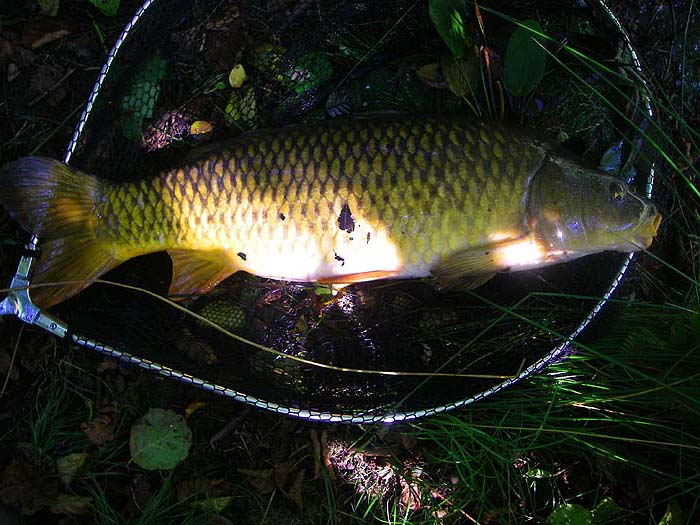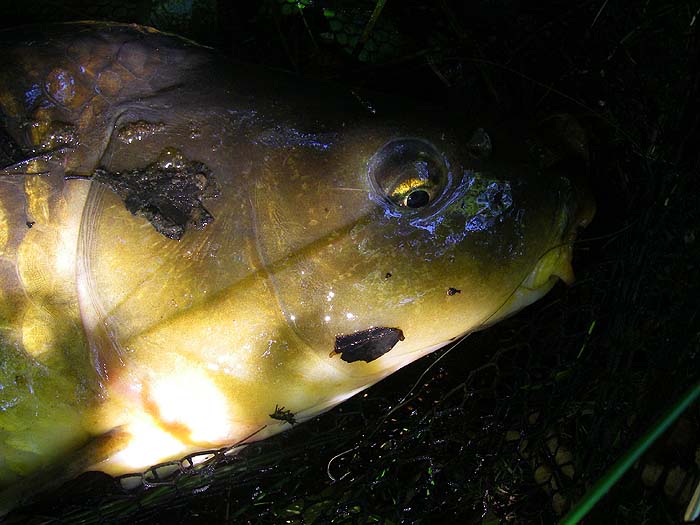

Catch Fish with
Mike Ladle
Information Page
For anyone unfamiliar with the site always check the FRESHWATER, SALTWATER and TACK-TICS pages. The Saltwater page now extends back as a record of over four years of (mostly) sea fishing and may be a useful guide as to when to fish. The Freshwater stuff is also up to date now. I keep adding to both. These pages are effectively my diary and the latest will usually be about fishing in the previous day or two. The Tactics pages which are chiefly 'how I do it' plus a bit of science are also updated regularly and (I think) worth a read (the earlier ones are mostly tackle and 'how to do it' stuff so if you are new to fly fishing or spinning these are the ones for you).
25 August 2009.
Careful Mike!
I NEVER leave a rod unattended. Apart from anything else, when a single fish can make all the difference between a good day and a rubbish one I want to take every chance I have of making a catch. Most of the tactics that I employ involve holding the rod in any case. If I'm spinning or fly fishing, by definition, it means that I am constantly casting and retrieving so the rod is always in hand. If I'm free lining or float fishing live or dead baits for pike, bass, perch, wrasse or what have you then I hold the rod all the time. If I'm float fishing for coarse fish again I need to hold the rod and even if I'm legering I'll usually have the rod in one hand and the line between my fingers feeling for bites.
However, there is one type of fishing in which the waits between bites can be so long and the bait must remain so still that it would be very tiring or even foolish to hold the rod all the time. Carp tend to take their time. Even if the bait is plonked on their noses they will often seemingly ignore it for twenty minutes or half-an-hour before they decide to suck it in. There are really two possible approaches to this sit and wait sort of fishing. You can either set the rod up on rests with the bale arm open or with the 'baitrunner' off. In this case (the norm for most carp anglers) you wait for the indicator to beep or for the line to start running out and then, at the critical instant, you pick up the rod and strike the hook home. In my youth I did my share of this sort of thing, not with bite indicators but with a bit of silver paper or a dough bobbin pinched on the line and it works pretty well, However, over the past few years I've adopted a different approach.
I suppose you could call my recent carp fishing the 'bolt rig' approach, although I don't employ heavy leads or fixed baits. I am usually free-lining with either a floating or sinking bait. I cast out or lower the bait into the water, tighten the line, close the bale arm, lay the rod down on the bank, take up most of the slack and wait. The same tactics work whether I am margin fishing or casting out. The first intimation that a carp has taken the bait is usually when the rod tip whips over as the fish hooks itself. There is no problem here because invariably my hand is hovering over the rod butt and in any case the bankside vegetation prevents the rod slithering forward.
Nevertheless I've always been conscious that if I didn't concentrate there was a faint possibility that a fish might drag the rod into the water. This week it almost happened. I was, as always, hovering over the rod and alert for a bite but the fish was so powerful and it took off so suddenly that I needed a flying dive onto the muddy bank to grab the butt end before it disappeared into the drink. Truly I was shocked by the experience. As it happened all was well that ended well. After a bit of a tussle I managed to net, photograph and release a nice carp in the lower twenties but I won't let it happen again. After I'd landed the fish I called myself a few choice names ('silly old so and so' was the mildest) for not taking steps to avoid such an event.
The same afternoon I visited the local hardware shop and bought a strong skewer and a metre of nylon cord. On future carping trips my rod handle will be securely looped to the skewer which will be pushed well into the ground. Of course my hand will still be hovering over the rod but there's nothing like a bit of insurance eh!
Phew!

Cracking fish.

The hook.
